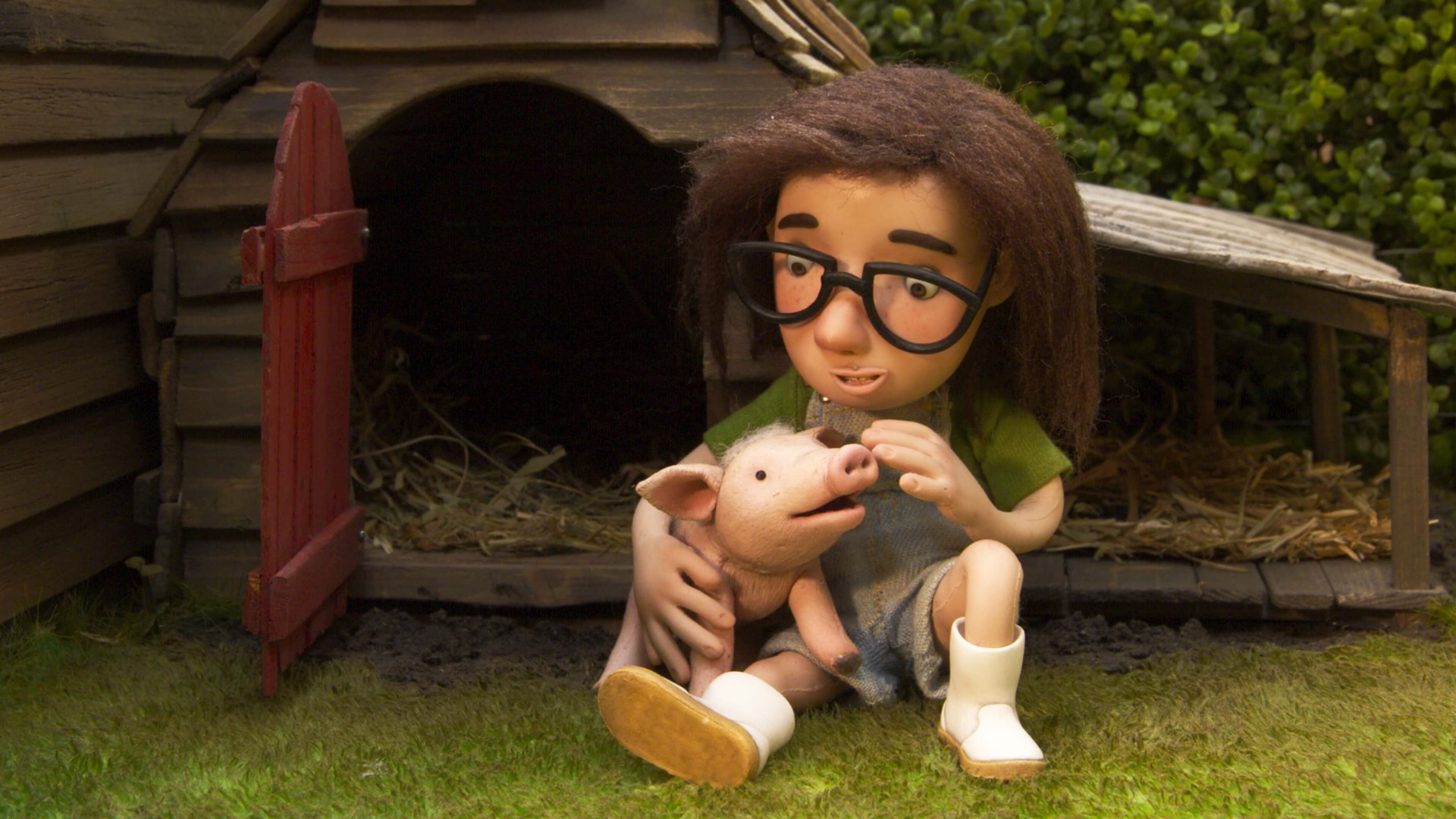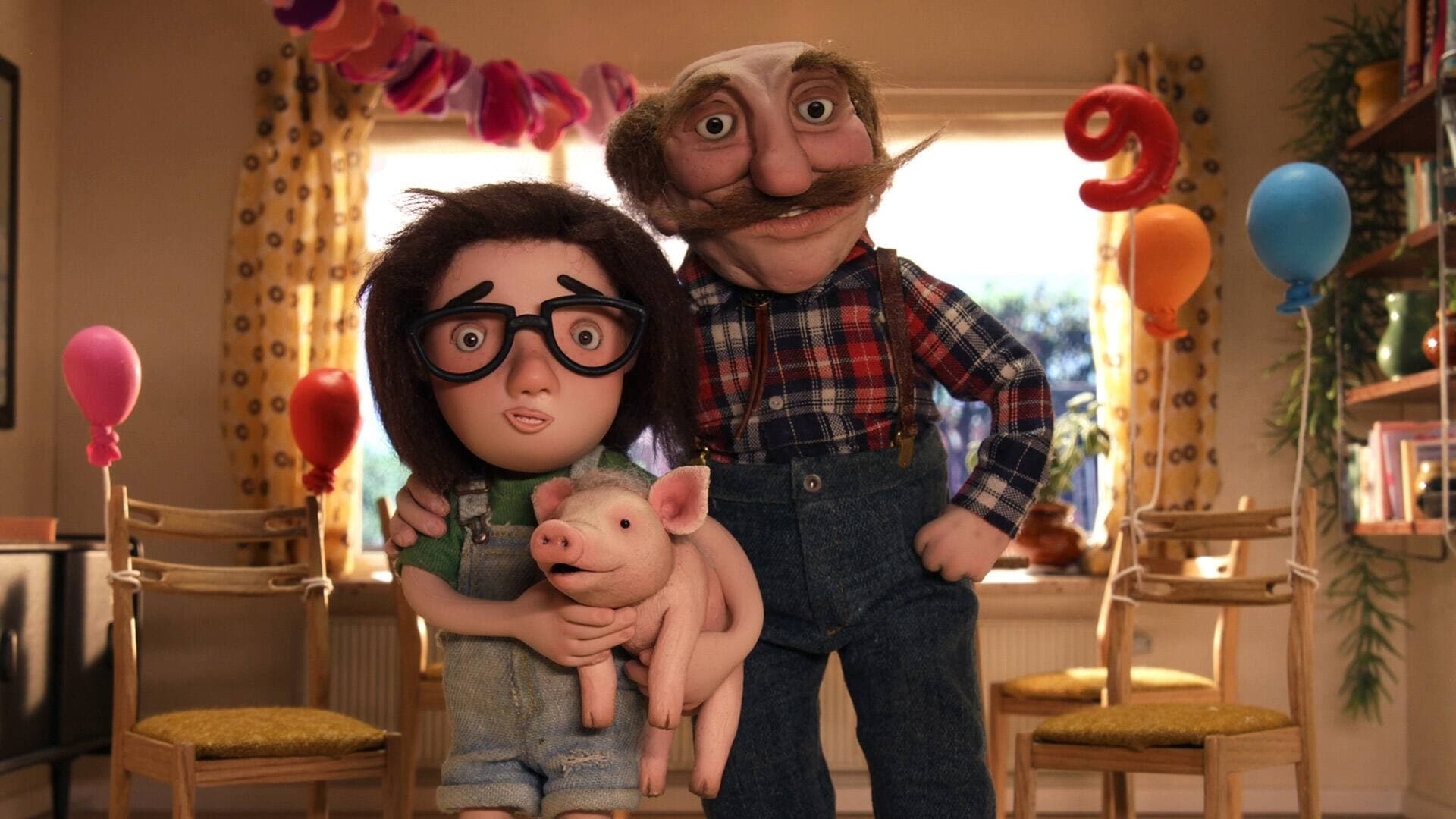Oink is a simple and sweet family film about a girl and her pet pig
Delivers enough low-scale joys and a worthwhile story to stay in the memory of any young moviegoers who experience it.

Nominated for the Crystal Bear at the 2022 Berlin Film Festival, Oink is a stop-motion family film about a girl learning to care for her pet piglet. While it might not be remembered as a children’s classic, Liam Maguren reckons this humble film might stay in the memory of any young moviegoers who experience it.
Running at a humble 72 minutes long, Oink is the kind of simple and sweet family film that feels like a rare treat to experience in cinemas nowadays. Not to rag on current all-ages animated blockbusters—I love a lot of them too—but they seem committed to fast and frantic storytelling with jokes coming at you every minute just to make sure you’re engaged. We really need to give children’s attention spans a bit more credit.
A Dutch stop-motion film with an English dub (so no subtitles), Oink centres on vegetarian Babs and the pet pig she gets on her ninth birthday. The gift comes from her elusive grandfather who arrives at their home unannounced, occupies Babs’ cabin without asking, and cannot stop singing about his love of sausages. He also seems unwilling to chat about that one time he ditched his daughter to live in Texas. Babs sums it up to her mum: “Your mother died and your father walked out on you? That’s stupid.”
Babs’ attitude towards gramps changes instantly, however, when he hands her Oink the piglet. Suddenly, he’s the coolest, and kids in the audience might feel the same way. He seems like a happy-go-lucky chap after all, but adults will see beyond that demeanour and pick up on pa’s selfish behaviour. He makes for an engaging character, one that ought to spark some really good parent-child chatter after the movie.
Babs clearly got her vegetarian ideals from her mother, so she’s surprised to hear her mum’s concern about keeping the pig. In order for Oink to stay, Babs must commit to the unusual task of putting the pig through puppy training. It’s a novel approach to the typical story of a kid learning to care for a pet, one that admirably digs a little further to observe the way adults can seemingly say one thing but also do the opposite—whether they’re lying to us or lying to themselves.
As for Oink the baby pig, well he’s just a darn cutie. Though there are plenty of piggy poop scenes, they’re poop scenes with purpose, and they don’t do much to stop the little guy from being as loveable as a labradoodle. Cinema’s been graced by the adorable power of piglets before, from Babe to Charlotte’s Web, and Oink proves himself to be some pig. (Adults who have seen recent grown-up art films Pig and Gunda might raise an eyebrow seeing Babs gleefully take the baby pig away from his parent, but that’s a different conversation for another day.)
Animation studio Holy Motion deserves the credit for bringing Oink to life. The craft isn’t quite on the level of its peers, like Chicken Run or My Life as a Zucchini, but the use of stop-motion charms nonetheless. Though it comes across more as a highly polished TV show than a cinema production, the tactile look suits a modest story like this one, sporting nice little visual touches like the use of cotton for smoke.

Unfortunately, the middling voice acting from the English language cast pulls the experience back a little with line deliveries that lack a certain energy. The script doesn’t give the performers much to work with either, not doing much to elevate potentially memorable side characters like Babs’ great aunt, who can’t accept that grandpa’s a changed man.
While these setbacks keep Oink from being a children’s classic, it still delivers enough low-scale joys and a worthwhile story to stay in the memory of any young moviegoers who experience it. And unlike a lot of other animated animal films, it commendably commits to a clear message about animal welfare.






















